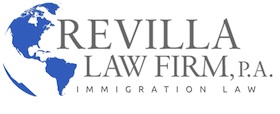The Facebook posts and WhatsApp messages promising safe haven in Canada claim to have the blessing of the Canadian government. Creole-language radio stations offer up consultants giving free and paid consultations for Haitians seeking residency across the U.S. border. Border cities such as Montreal are welcoming immigrants with open arms, or so the stories go.
Haitians in the U.S. — fearful of the Trump administration’s crackdown on immigrants but unwilling to return to the grinding poverty of their homeland — have responded by the thousands. They’ve quit their jobs, sold their possessions and taken planes, Greyhound buses and even taxis to the U.S.-Canada border.
The number of migrants illegally crossing into French-speaking Quebec more than tripled in July, with another 3,800-plus entering in just the first half of this month. And now Canada is aggressively trying to stem the flow and dispel the myths that have triggered an unprecedented exodus of mostly Haitian asylum seekers.
Public service announcements have been drawn up in English, French and Creole. Canadian consulates across the U.S. have been mobilized. And on Thursday, Prime Minister Justin Trudeau dispatched his nation’s only Haiti-born parliamentarian, Emmanuel Dubourg, to Miami, home to the largest concentration of Haitians in the U.S.
Armed with the Creole language and his own personal tale of migrating to Canada from Haiti four decades earlier, Dubourg was clear everywhere he went: There is no new immigration program for Haitians in Canada.
“It’s not true that Canada is wide open,” Dubourg said, as he visited Miami’s Little Haiti Cultural Center Complex ahead of a closed-door meeting with nearly two dozen Haitian community leaders and immigration advocates at nearby Notre Dame d’Haiti Catholic Church. “Crossing the border...is no free pass.”
Some asylum seekers have cited Temporary Protected Status, the special humanitarian program for Haitians that the Trump administration has signaled may end in January, as their reason for fleeing north. But Dubourg blamed “misinformation circulating” on social media for the influx.
“People are looking for ways to help themselves and their families,” he said, “so they are, I would say, kind of desperate [and] are willing to accept that information.”
One such message in French circulated among Haitians last month on WhatsApp. It read: “The Consul of Canada in the USA held a meeting in New Jersey for more than two hours. It invites and even encourages all Haitians (with or without TPS) to apply for a Canadian residence.”
It even provided a phone number to someone purporting to be a Creole-speaking attorney, Max L. Jean-Louis, along with a line: “The fees will be reduced by the Canadian government. Inform yourself and good luck.”
But the number doesn’t work.
Claudia Roger, a Haitian national who lives in Alpharetta, Georgia, said she shared the message on a WhatsApp group because she believed it was a legitimate answer to many people’s prayers. She was surprised to learn otherwise.
“A lot of people are having this TPS problem and they don’t know where to turn,” she said. “That’s not good. They are taking advantage of it... [People] are desperate and they are scared.”
Even Dubourg, in Miami to tell Haitians that the rumors aren’t true, was startled to see a Facebook post advertising a Sept. 9 meeting at the Evangelical Crusade Christian Church in Brooklyn, NY. The post claims in Creole that a “Canadian Border, Canadian immigration lawyer” will lead a talk on immigration.
“No one has been mandated to leave Canada to come discuss how someone can enter the country,” Dubourg said. “This is truly a racket.”
The church’s pastor did not return a phone call from the Miami Herald seeking information about the meeting.
Dubourg said the Canadian government has launched an investigation to uncover who is behind the push to send Haitians north. Haitian leaders in Miami and New York also believe there’s a profit motive.
“I have Haitian people in New York in my district stopping me on the streets, coming to my office to share with me their decision to go to Montreal, Canada, because they believe that Canada has opened the door for them,” said New York City Councilman Mathieu Eugene, who visited Montreal last week to meet with Haitian leaders about the influx.
“Some of them say they heard that Canada is accepting Haitian people with TPS. Some tell me that their friends are already in Canada, family members are already there, and are telling them, ‘You have to come over because they received this, or they received that and Canada is going to give them authorization to stay,’ ” Eugene said.
Eugene said he tells them the fight for a renewal of TPS beyond the January expiration date is continuing. “They don’t want to hear it,” he said. “It’s very difficult to change their minds.”
When he visited Haitian asylum seekers at a shelter in Montreal, Eugene said it became clear that many had made a rash decision.
“They were asking me questions, ‘What’s going to happen? Are they going to send us back to the U.S.? Are they going to give us the authorization to stay?’ ” he said. “They don’t understand the situation....You see a bunch of them, men and women, trying to understand, trying to figure out the situation. This is something serious.”
As Dubourg wrapped up his visit Friday, U.S. Senator Bill Nelson, D-FL, also speaking at the Little Haiti Cultural Center, renewed his call for an 18-month extension of TPS.
The illegal migration to Canada by Haitian TPS-holders, Nelson said, was “another reason why the administration should extend, right now, the Temporary Protected Status for the 60,000 Haitians that are here, so they don't feel like they have to flee to Mexico or flee to Canada in order not to have to go back to Haiti."
The steady stream of asylum seekers —10,000 since the beginning of the year — sweeping into Quebec has strained government resources, with the military being called out earlier this month to build a tent city along the official border crossing of Saint-Bernard-de-Lacolle after Montreal’s gigantic Olympic Stadium was opened to shelter refugees.
With some Canadians now questioning the integrity of their immigration system in the wake of the surge, an intergovernmental task force on the topic met for the second time last week. Days before the meeting, Trudeau signaled a slightly tougher immigration stance than he had earlier.
Canada, he said, remains a “welcoming and open” society to those fleeing persecution and in need of protection but “we are also a country of laws. Entering Canada irregularly is not an advantage. There are rigorous immigration and customs rules that will be followed. Make no mistake.”
In Miami, Dubourg stopped just short of saying that Haitians should not go to Canada.
But North Miami Councilman Alix Desulme said the message was clear. “I think their recommendation is for Haitians to go through the legal process to go to Canada and they are not encouraging Haitians to come in illegally into the country,” he said.
Marleine Bastien, a local Haitian leader, said it’s very difficult to tell people not to go as they struggle with anxiety over the future of TPS.
“When people are in a burning house and they are running, you cannot tell them where to run to,” said Bastien, who like Eugene hasn’t had much luck in convincing Haitians with TPS not to flee. “They are running because they fear President Trump will not keep his promise and deport them like criminals.”
She, too, believes that Haitians are being being preyed on by criminals seeking a quick buck.
“But instead of trying to find the source of this, it’s best for Canada to develop a process so that these Haitians who are getting there are able to state their claim,” Bastien said. “Canada needs to make sure their basic rights to due process are respected, put a moratorium on deportations back to Haiti and look at this accord with the U.S.”
The accord, known as the Safe Third Country Agreement, forces those seeking asylum to do so in the first country they land in. But there’s a loophole. If migrants cross at an unofficial border crossing without a border agent — as many are doing in upstate New York — they can request asylum from Canada.
There was one indication, however, that Dubourg’s message may be having an impact.
After Dubourg left the Miami studios of popular Creole-language radio host Nelson “Piman Bouk” Voltaire, the host told his huge audience of listeners something they might not want to hear.
“Haitians, do not go to Canada,” he said, calling on those with TPS to wait to see what the Trump administration decides. “I know a lot of people aren’t going to be happy with me saying this. But why would you leave the rain to go jump in the river? Stay and wait.”
Read more: http://www.miamiherald.com/news/nation-world/world/americas/haiti/article169497902.html
REVILLA LAW FIRM, P.A.
Miami immigration lawyers and deportation defense firm
If you have questions or concerns about your immigration status, it's important to speak with an immigration attorney to discuss your options. With all of the misinformation being disseminated, there's understandably a lot of panic, but we strongly advise you to speak with an experienced immigration lawyer before embarking on a life-changing decision that might not be necessary.
Feel free to contact our Miami immigration law firm to get a better understanding of the protections in place for certain individuals and what this means for you. We will thoroughly evaluate your case and advise you on the best way to proceed based on the current policies in place and potential changes moving forward.
Call our Miami immigration law office today to schedule a free in-office consultation with Antonio G. Revilla III. Mr. Revilla is a Former U.S. Immigration Prosector and immigration attorney with over 25 years of legal experience.
Contact us at (305) 858-2323 or toll free (877) 854-2323.

We are your Miami deportation defense lawyers

